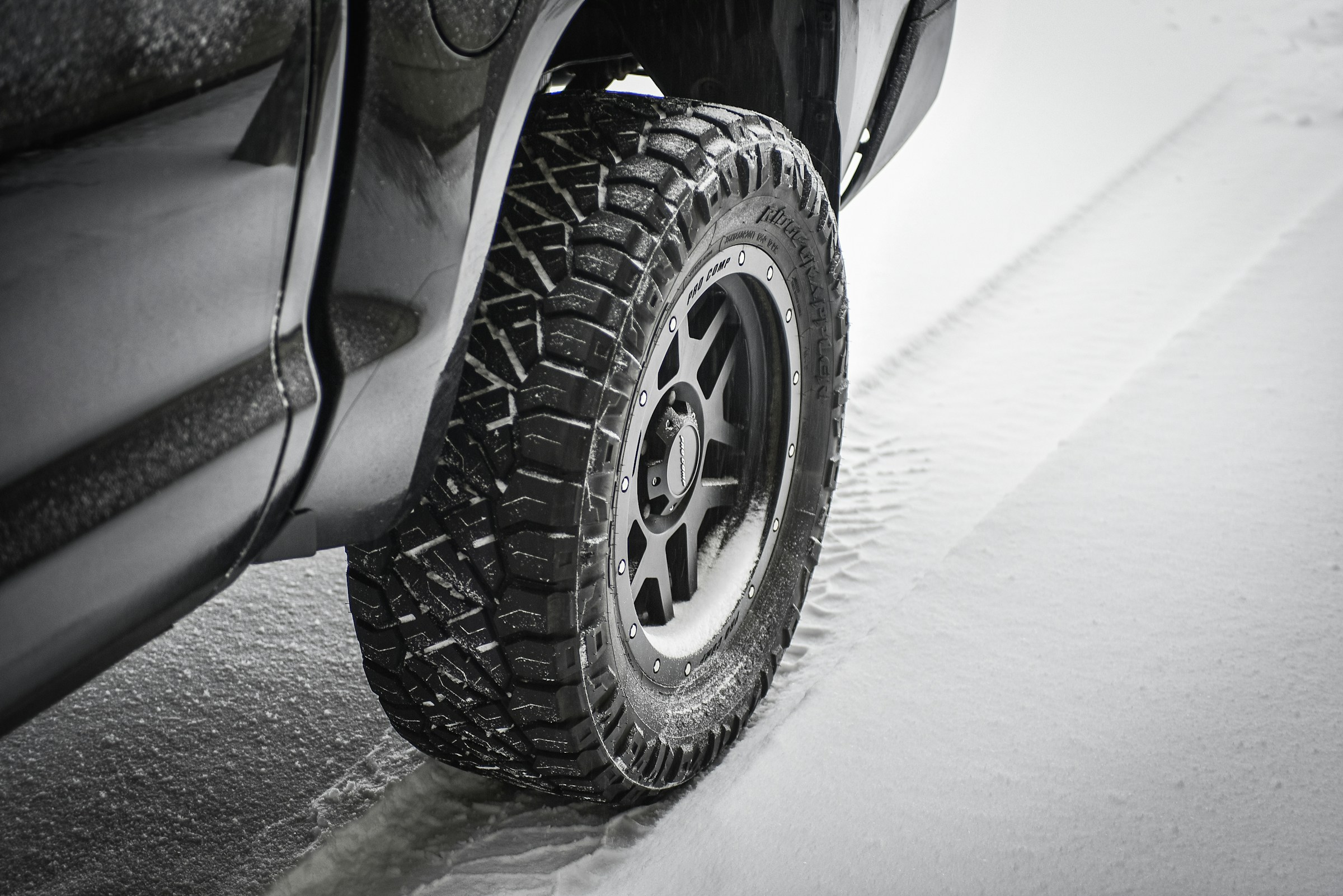>28
Nov

28
Nov
As the weather gets colder, the question of whether to switch to winter tyres will often arise. Icy roads, frosty mornings, and unpredictable weather can all contribute to the need to ensure your car is properly equipped to deal with extreme conditions.
One tool to help enhance safety and performance when driving in the winter is winter tyres. But are they necessary for everyone? In this guide, we’ll explore what winter tyres are, if they’re legally required, and how you can decide if they’re right for your needs.
Winter tyres are designed to provide better performance and enhanced safety when driving I cold, icy, and snowy conditions. They are made to handle the various challenges of winter weather and help drivers to maintain control even in extreme temperatures.
Winter tyres are made with a softer rubber compound that can remain flexible even in cold weather. This helps the tyre to grip the road better than regular tyres, which can harden and lose grip as the temperatures drop.
Winter tyres also feature a deeper tread pattern, which includes a higher number of sipes (which are tiny slits on the tread blocks). This helps to boost traction by dispersing water, which reduces the risk of skidding or aquaplaning.
Winter tyres will be most beneficial when the temperatures consistently drop below 7°C. At these temperatures, your regular tyres can harden and lose grip, whereas winter tyres will maintain traction on cold road surfaces.
Winter tyres will give you better performance when the roads are covered in snow and/or ice, as the deeper tread and additional reads will help you to maintain control on slippery roads. If the weather has turned and it’s forecast to be snowy, you may want to consider switching to winter tyres.
Winter tyres can also be effective when roads are wet and slushy, such as after snowfall. These tryes are designed to disperse water and slush, which can help you to avoid skidding and improve braking performance. Again, when these conditions become common, it can be beneficial to switch to winter tyres.
Winter tyres are not legally required in the UK. They can boost safety and performance, but you will not be penalised if you drive without them in snowy or icy conditions. Even so, it’s important to ensure your tryes meet the minimum legal tread depth of 1.6mm, regardless of type. Not only is it illegal to drive on tyres with a tread depth below this, but it will also make it much more dangerous driving in extreme conditions.
Whilst they’re not mandatory, winter tyres are highly recommended for those living in or travelling to areas prone to frost, snow, or icy conditions, especially in more rural and isolated areas. They can improve safety and potentially reduce the likelihood of accidents during winter months.
Some European countries have stricter rules regarding winter tyres. If you are planning to drive abroad during the colder months, you should check what the regulations are for your destination.
For example, in Germany, Austria, and Sweden, winter tyres are mandatory, either when conditions are bad or during the winter period. Sometimes trye chains are also required. Failing to comply with local rules can result in fines.
Choosing whether to invest in winter tyres will depend on several factors, including how and where you drive. For example, if you drive daily, especially early in the morning or late at night when roads are more at risk of being icy, winter tyres can help to enhance your safety.
You may also want to consider winter tyres if you regularly drive on rural roads. These are less likely to be gritted, and so can be more dangerous. Winter tyres can help you to maintain control and keep safe.
Where you live will also affect whether winter tyres are right for you. For example, if you live somewhere that frequently experiences heavy snowfall, winter tyres can be a huge benefit.
If you feel that winter tryes aren’t suitable for you, there are some alternatives you can opt for to help remain safe in dangerous conditions.
All-season tyres will combine elements of summer tyres and winter tyres, resulting in good performance in a range of weathers. While they won’t offer the same level of performance as dedicated winter tyres, they can be a good option for areas where the weather is milder in the winter.
Another option is snow chains or snow socks. These can be fitted over your regular tryes to improve traction in extreme snowy or icy conditions. They’re not suitable for everyday driving but can be a benefit when the weather is severe or if you need to drive in dangerous regions such as mountainous areas.
If alternatives aren’t an option, you should remember to adjust your driving style for winter conditions. This can involve reducing your speed, increasing the stopping distances, and avoiding sudden manoeuvres to help reduce risks.
You can read more in our guide on How to Drive Safely in the Ice and Snow.
Getting your next car is easy with GetCarFinanceHere. Our expert team will find the best car finance deals for you from our network of lenders, and we’ll help you through the whole process to get you on the road as soon as possible. Apply online today.
Thank you for your interest. Please fill out the form below to Request a call back and someone from our team will get in touch shortly.